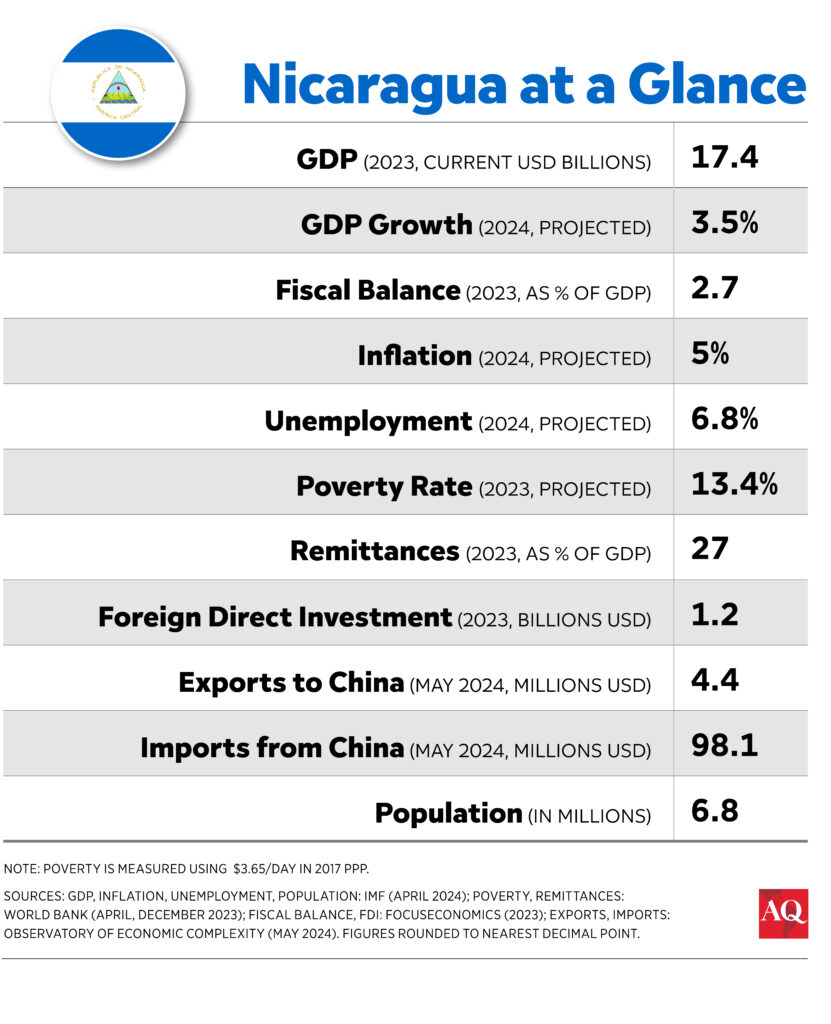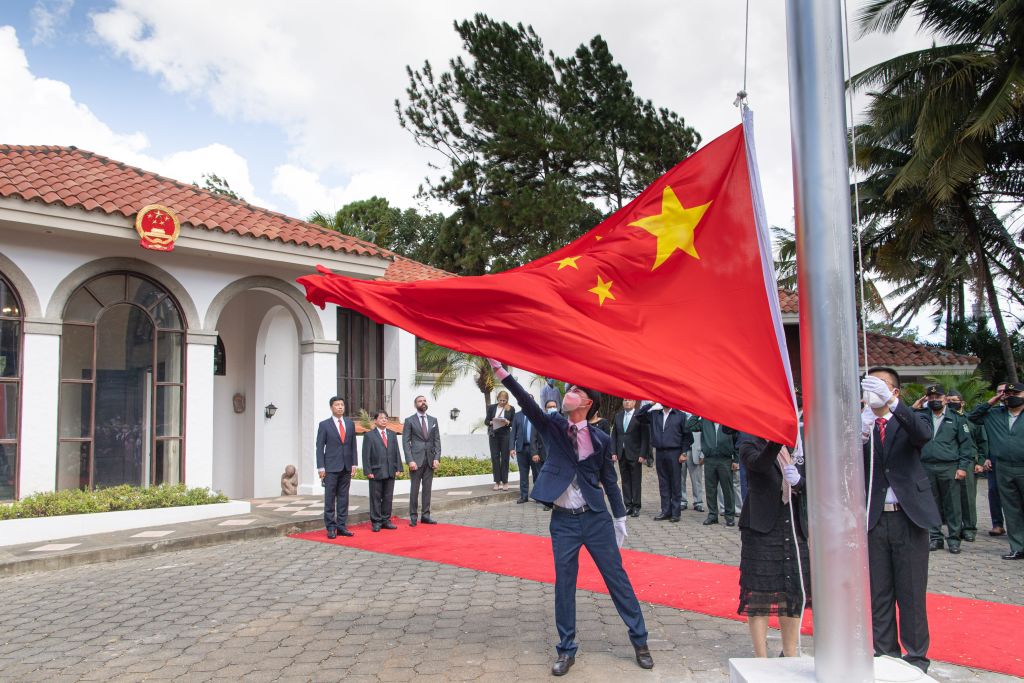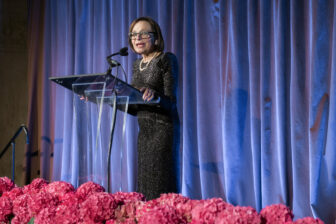MEXICO CITY — In December 2021, Nicaragua’s President Daniel Ortega broke longstanding diplomatic ties with Taiwan to establish relations with the People’s Republic of China. The shift was concerted by Laureano Ortega Murillo, Ortega’s son and a leading international envoy, who hailed it as a transformative move to “a new era.”
The reopening of a Chinese embassy in Managua on December 31, 2021, was the most visible symbol of this “new era.” At the inauguration, China’s representative, Yu Bu, and Nicaragua’s foreign minister, Denis Moncada, highlighted the importance of non-interference in other countries’ affairs. The event came just weeks after the U.S., the Organization of American States, the European Union, and others condemned Nicaragua’s November 2021 elections as illegitimate, following months of repression and the incarceration of 39 people, including civil society leaders and seven potential presidential candidates.
In political terms, the strategic move towards China sought to ease a sense of intensifying international isolation for Ortega’s regime, but it did nothing to relieve renewed pressure from the U.S., its largest trading partner. Since the 2021 elections, the Biden administration has increased its monitoring of the Central American country, sanctioning Nicaraguan Attorney General Wendy Carolina Morales Urbina for her complicity in allegedly persecuting political opponents, several officials due to allegations of human rights abuses, and three judges for stripping over 300 Nicaraguans of their citizenship.
While incurring a political cost, the alignment with Beijing has resulted in only very limited economic gains, dashing expectations that pleasing China would bring a substantial payoff for Nicaragua’s $18 billion economy, the second poorest in the hemisphere in terms of GDP. Nicaragua’s relationship with Taiwan, recast in the 1990s under former President Violeta Chamorro, was lucrative. It brought sizable economic aid, including investments in infrastructure, education and health services. Major road projects financed by Taiwan were especially popular. Between 2007 and 2018, official figures show that Taiwanese cooperation with the Nicaraguan public sector totaled $170.6 million.
Chinese aid and investment, meanwhile, have paled in comparison. The tangibles thus far include 750 Chinese buses for Managua’s transport system, 800,000 donated doses of Sinopharm COVID-19 vaccines, and six containers of medical supplies valued at just over $1 million. Chinese officials have made vague promises to build a $600 million deep-water port in the southern region and 12,000 homes in two autonomous provinces. And in May, Nicaragua’s Congress nixed a $50 billion interoceanic canal project with Chinese investor Wang Jing, initially approved in 2014, over a lack of transparency regarding finances and the investor’s role.
As Nicaragua’s economy continues to rebound from the COVID-19 pandemic-induced recession, the country will need more from its new Asian partner. The International Monetary Fund projects 3.5% growth in 2024, below the historical level of 3.9%, anchored primarily on private consumption, “given the cautious recovery in investment, limited approved new official financing, and lower labor contribution to growth due to recent emigration,” the multilateral lender said in a report earlier this year. It also forecast a year-end inflation of 5%.

The role of trade
China and Nicaragua also inked a free trade agreement that went into effect on January 1. Nicaraguan officials project confidence that exports will spike. Development, Industry, and Commerce Minister Jesús Bermúdez said in January that Nicaragua expects to export $200 million to China with the FTA’s full implementation. However, in the first three months of this year, Nicaragua’s exports to the Asian country amounted to just $25.6 million—compared to $998.4 million to the U.S.
Even if Nicaragua’s new relationship isn’t generating swift economic gains, Ortega’s strategic alignment with China can be interpreted as an attempt to secure a robust ally. Ortega faces mounting pressure on both domestic and international fronts, exacerbated by extensive sanctions from the U.S. and EU targeting key officials, including his children. He and his inner circle are increasingly isolated as progressive governments in Latin America, such as Chile and Colombia, distance themselves and criticize his regime’s actions.
Internally, opposition to the government has been met with an intensifying crackdown five years after the major 2018 demonstrations that demanded an end to dictatorship and the restoration of democracy. Ortega responded with harsh repression, solidifying an authoritarian system that crushes dissent and has left 147 political prisoners and many others under house arrest or constant police surveillance.
Selling to Beijing
For now, Chinese businesses appear to be primary beneficiaries of Beijing’s new engagement. They have been awarded three long-term gold mining concessions, most recently an open-pit mine permit covering 2,091 hectares to exploit metallic and non-metallic minerals.
Meanwhile, they have opened so many shops that an influx of inexpensive Chinese goods has strained local businesses, whose owners are expressing dismay. “How can I compete with those giants?” asked one shop owner in the country’s largest market.
As early data indicates, exporting to China is a challenging task. It’s unclear what the country might export to this market, said Enrique Sáenz, a Nicaraguan economist and political analyst who is now in exile. After metals, Nicaragua’s primary exports to China are small quantities of tobacco and knit suits, according to data from May compiled by the Observatory of Economic Complexity (OEC).
Investment under current conditions is also a question mark, Sáenz told AQ. “Chinese investment needs to be profitable, and profitability depends on prices people can afford. With 40% of the population employed in the informal economy, it’s hard to see large-scale investment being profitable in Nicaragua,” he said.
Losing Taiwan as an ally has meant forfeiting millions of dollars from a partner that did not criticize the government’s authoritarian actions. Nicaragua’s alignment with China may alleviate Ortega’s international isolation, but thus far it is not paying off economically.








